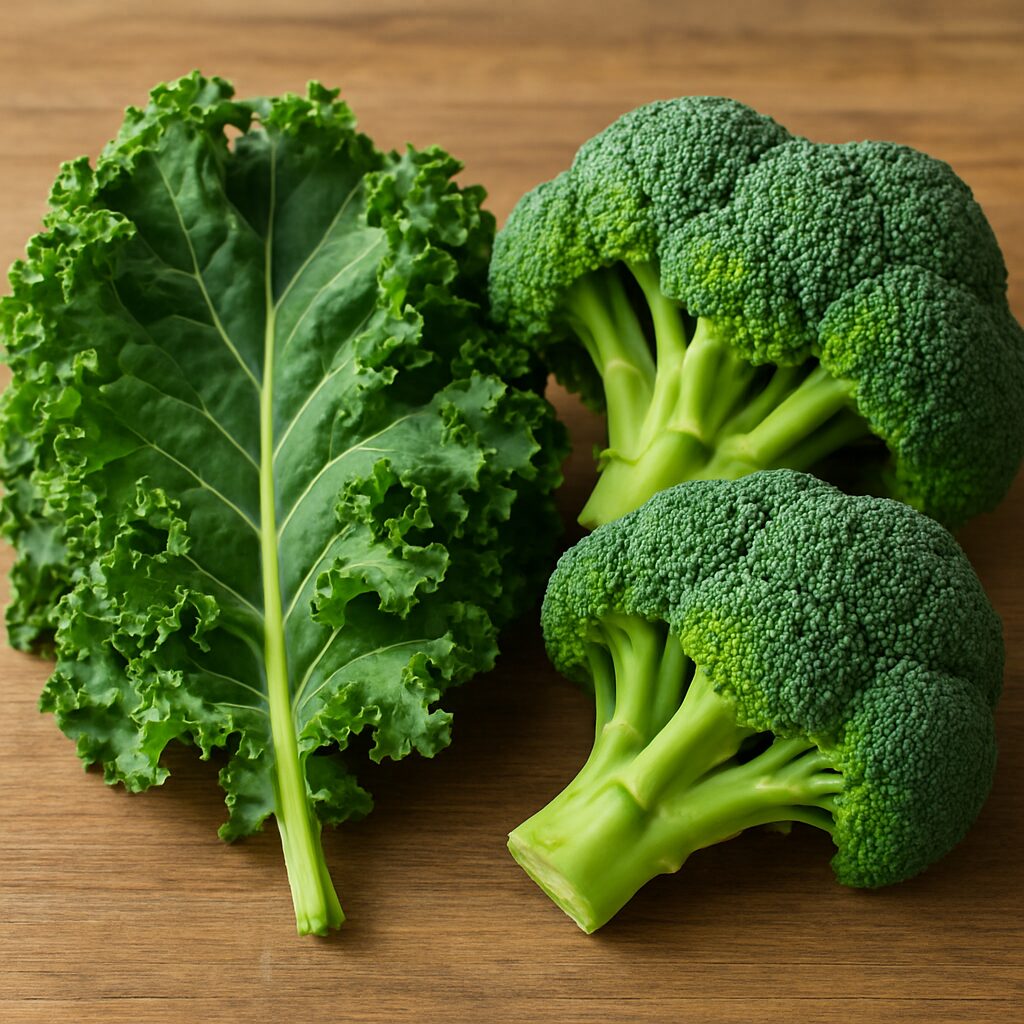Vitamin K is a fat-soluble vitamin that may play a vital role in blood clotting, bone metabolism, and vascular health. While it is often less discussed compared to other vitamins, it could be essential for maintaining proper body functions. This article highlights the potential benefits of vitamin K, signs of deficiency, food sources, and safe intake considerations.

1. Blood Clotting Function
Vitamin K is necessary for producing proteins involved in blood clotting. Adequate levels may help wounds heal properly and reduce excessive bleeding risk.
2. Bone Health
By supporting calcium binding in bones, vitamin K may help maintain bone density and lower the risk of osteoporosis. It could be especially important for women after menopause and older adults.
3. Cardiovascular Health
Vitamin K may help prevent excessive calcium deposits in blood vessels, supporting vascular flexibility. This effect could contribute to long-term heart and circulation wellness.
4. Growth and Development
During childhood, vitamin K may be essential for proper skeletal growth and normal blood clotting. Newborns are often given vitamin K at birth to prevent bleeding risks.
5. Brain Health
Vitamin K may support nervous system activity by protecting cells from oxidative stress and promoting healthy circulation to the brain.
6. Antioxidant Properties
Vitamin K also contributes to antioxidant defense, which may reduce oxidative damage and support general cellular balance.
7. Deficiency Concerns
Low levels of vitamin K may cause easy bruising, nosebleeds, or delayed wound healing. Long-term deficiency could increase risks of weak bones and vascular calcification.
8. Risks of Excess
Although uncommon from food intake, excessive supplementation could interfere with liver function or blood clot regulation. People taking anticoagulants should carefully manage their intake with medical guidance.
9. Food Sources
Vitamin K is abundant in leafy greens such as spinach, kale, and broccoli, as well as fermented foods like natto, liver, egg yolks, and cheese. Regular intake from diverse foods may support healthy levels.
10. Daily Needs
Most adults require around 90–120 mcg daily. Balanced diets with vegetables and fermented foods usually provide sufficient amounts.
🌿
Vitamin K may support blood clotting, bone strength, cardiovascular balance, and overall vitality. A varied diet with leafy greens and fermented foods could help maintain adequate levels while avoiding excessive supplementation.
References and Further Reading
World Health Organization (WHO) – Vitamin K and Health
National Institutes of Health (NIH) – Vitamin K Fact Sheet
American Heart Association – Nutrition and Vascular Health
※ This article is for general informational purposes only. Individual requirements may vary, and professional consultation is recommended before supplementation.